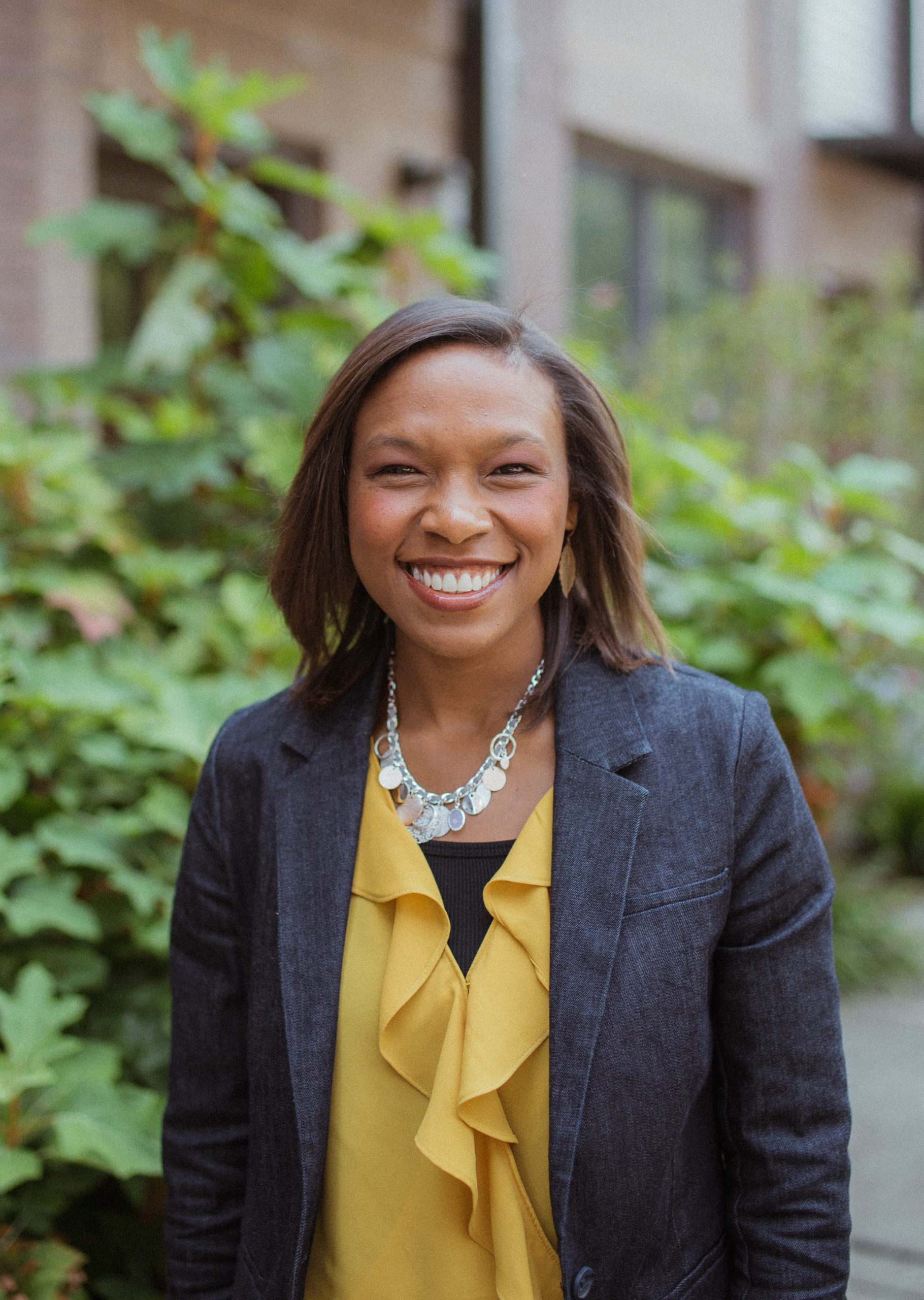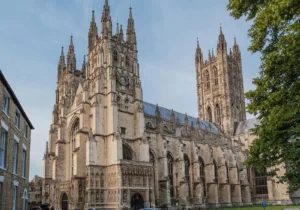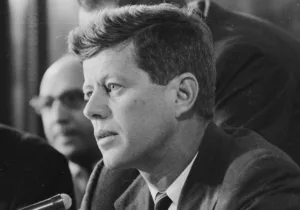Providence has recently published a few articles about race and racism after the murder of George Floyd, and in this episode of the ProvCast recorded in early July, Trillia Newbell speaks about a Christian perspective on racism, the imago Dei, practical ways Christians can respond to racism, and hope for the future.
Newbell is the director of community outreach for the Ethics and Religious Liberty Commission for the Southern Baptist Convention, an acquisitions editor for Moody Publishers, and the author of multiple books—including Sacred Endurance: Finding Grace and Strength for a Lasting Faith, United: Captured by God’s Vision for Diversity, and If God Is For Us: The Everlasting Truth of Our Great Salvation.
CNN recently interviewed her for an article about racism and evangelicals, which can be found here.
Rough Transcript
Mark Melton
Welcome back to the Foreign Policy ProvCast. My name is Mark Melton and I am the managing editor for Providence. And today we are joined by Trillia Newbell, who is the acquisitions editor at Moody and the author of several books, including God’s Very Good Idea, If God Is For Us, and many others. First off, Trillia, thank you so much for joining us today.
Trillia Newbell
Thank you, I’m glad to be here.
Mark Melton
Providence has run a few articles talking about race and racism and the…especially after the George Floyd murder and also all the protests. And just last week, my home state or where I’m from, Mississippi took down the Confederate banner off its flag. So this is an issue that has been very…very in the news cycle lately. And Trillia, my first question is, how should Christians think about race and racism?
Trillia Newbell
Yeah, that’s a great question. You know, it’s interesting, because the…topic concept to however you want to say it of race, is so broad. And in so far as there are lots of definitions for, and some would say that race as a…as that label, isn’t accurate or isn’t a good descriptor. So…so for me to try to define it would take probably the entire of all of our time together. So I will talk about racism. So there, it’s clear in the Scriptures that there are ethnicities, there are different people made up of different cultures, and colors, and…and tribes, and tongues, and nations. And so, the problem we have is really a Genesis 3 problem, we are sinful and therefore we relate to one another in that brokenness often. And that can lead to racial pride, which is could be considered racism…the sin of partiality, we can disassociate ourselves from others based on race. And so racism…is any type of arrogance, pride, hate, associated…when we…when we hate based on the color of someone else’s skin. And so it is something that has…been a, not just a scar, but a devastating aspect of the American culture since its inception.
Mark Melton
So what role does the church play in these issues?
Trillia Newbell
Well, that is one of the things that I would like…to rename it as, not as much an issue, although it is an issue, there are issues that come from it. But this is about people, people made in the image of God. So the church, we have God’s word, to help instruct us, guide us, and teach us what we should believe about other people and how we should interact with other people. So starting in Genesis 1…I already…I already mentioned the Imago Dei, The Image of God. And then if you go all throughout the scriptures, from Genesis to Revelation, God in his word, gives us a beautiful picture of what the gospel accomplishes for us what Jesus accomplished for us so that we can interact well and with love. And Jesus gave his disciples and multiethnic mission to go and make disciples of all nations. Ephesians 2, talks about the reconciliation of that…that Jesus accomplished on the cross that the veil of hostility has been torn in the body of Jesus. So making one new man, the Christian man. So cosmic…our cosmic reality is that we are united. The reality on earth is that we have not gotten there, but that is what has been accomplished for us, and we know that every tribe, tongue, and nation will be worshiping together. And throughout the Scripture, God rebukes those who sin against others based on ethnicity, and so…so the church has the best news, the good news, but what is…how are we supposed to or what is the church’s role in this? Is to apply that good news, and to proclaim that good news, and to respond with that good news in mind so we are to love our neighbor, we’re to mourn with those who mourn, weep with those who weep, rejoice with those who rejoice It changes the way when we look at the George Floyd murder, for example, it changes the way we respond because it’s another image-bearer taken in a way that is unacceptable is an understatement. And so it’s…it’s… it’s unjust. And so, we need to measure our thinking and our response based on what we know to be true about the word, and about God, and about people. And so the church…we have…we have the goods to speak into this well, we just don’t always do it.
Mark Melton
So how well has the church done in addressing racism?
Trillia Newbell
Well historically, we know we’ve failed miserably. The Southern Baptist Convention, for example, was birthed in segregation and on slavery. And so I just think, if you…if you look at historically, I would say we have, again, I’m speaking very specifically to the United States, I’m not speaking, thinking about worldwide. So we have we’ve done poorly and you will see churches who have stood up for justice and different clergy who walked in…marched in civil rights movement. So we know that there are churches that have spoken out, but historically, it seems like and even today, with a lot of churches are just now kind of waking up to the reality that this is a deep problem. It’s…I mean, we are divided. And I believe statistically, we are seeing an increasing amount of African-Americans leaving evangelicalism as a result. And so we need to…we need to do better, clearly, but I am hopeful and I do see, especially after George Floyd, I have seen people who would normally ignore this or not really think it’s part of their problem who are…are resisting apathy. And…and say…speaking up and evaluating how they do ministry. This is good news, but historically, I’d say we have failed in this area and that’s something that we should lament, but not something that I think…isn’t something that we can repent of, and turn, and change in, and continue to move forward.
Mark Melton
Pragmatically, like, how should Christians address racism? For instance, I know, I’ve seen churches back home in Mississippi…growing up like there weren’t any multiethnic, multiracial churches and when I moved from Mississippi to Virginia a few years ago, there were a couple of few, not many. And within that I saw, like, there were pragmatic things that they were trying to do to help integrate some of the churches on Sunday mornings, especially when you would have a predominant…or what used to be a predominantly white church in an African-American community, and trying to reach out to those…trying to bring those people in on Sunday mornings. And so, I didn’t see a lot of that, but I definitely saw some…a few churches trying to do that. And so my question is, like, pragmatically, like, what do you think Christians can do to try to help address these issues of racism?
Trillia Newbell
Yeah, so pragmatically, you can open your mouth and speak out against it. So…and that may be as simple as talking to your neighbor and when you hear something that’s an error, not absorbing it, not pretending like you didn’t hear but actually speaking out against it and an area like Mississippi, that may be a lot more radical and hard to do than maybe in somewhere like, think of a more diverse area…it may not be as hard so…so it’s kind of…it’s a…are we willing to speak up for truth and speak that truth in love? So that’s one thing is actually speaking, another thing is opening your door and…and getting to know those who are not like you. And…and this isn’t some kind of putting a bandaid on a very deep-rooted problem, it’s one step…one step into understanding others so you can love them well so that you can gain, it only benefits you). And so that you can gain understanding, and so that the gospel could…could be proclaimed and go forth, and that could be a picture of what it’s going to be like for eternity. And then if you’re talking about churches, you want to be real careful not to try to steal members, right from other existing churches. So I wouldn’t say you go and try to pull churches…members out of a predominantly black church. That’s not what we need to do. But can that pastor of that one church that’s predominantly white and the black church pastor…can they get together? And can they…can there be some way that their churches do ministry together? Yes, they can do that, but I would be real careful with how we approach those things. But in regards to ministry together and walking together, absolutely, we can and we should do that. And then I think, be…being aware of what your community looks like and what’s going on in your community, and being a voice for those who are underrepresented, and…and giving them a place…a platform so that they can speak, obviously for themselves. But I think sometimes…we…we’re insular…we’re…we’re in our own churches, in our own places, that we’re not really aware of what’s going on in the community at large. So I think, being a little bit more proactive in your community, when and where and…possible, I think is also a something that you can do tomorrow. And…and isn’t a difficult endeavor. I think that trying to make a predominantly white Church of multiethnic church is hard. So it’s not impossible, but it’s difficult because you can’t just change the cosmetically, you have to change the culture. And it’s worth it to…to change the culture of your church, but that’s something that’s going to would take a lot more effort and steps that I think is worthwhile, but is again something you’d have to…think through and talk about, in a greater way than maybe we have time for but I think its a worthwhile pursuit.
Mark Melton
Yeah, and some of the churches that I’m thinking about, they were churches that because of white flight, they were all…like they started off in an urban area and then they moved out to a different or they were going to move out to a different count. They may have started another church there but there was like, we still have this building here and there were people who wanted to stay in that community. The way I think that church did it was…it’s very…it was almost like a completely new church, with completely different worship style like it was a melding of worship styles that…like when I visited, you would have singing hymns from, you know, Scotland and England, alongside more gospel music and the pastor was African-American, but there was a mix of elders and deacons from across the community. And I believe, like, I don’t know…they did a lot of like, local ministry trying to reach out to people there. Yeah like just watching that you just saw how difficult it was to try to strike that balance because I think that a lot of people get used to… I mean, it’s already difficult sometimes to get churches to change worship styles to make it more contemporary. I remember my pastor here in Virginia talked about how he gets more emails about the worship music than anything else and he felt like that was like the least most important thing that was talked about on Sunday like they wouldn’t get emails about the sermon.
Trillia Newbell
It’s so interesting. Yeah, it’s hard to please people and so I think that’s something that pastors are gonna have to really pray, and consider, and think through. Do the work of ministry, be faithful to it, preach the Word of God, be faithful to it, evaluate, be aware of what your people and what they need, but you’re only going to be able to do the best that you can. And we will never please every single person, which is why multiethnic ministry is really hard because you just…there’s going to be a lot of desire. I mean, think about the desires in the church when you’re homogenous, you know. So I think…I think…it’s worth the risk, if which is sad that it’s a risk, but it’s worth the effort, it’s worth the pursuit, it’s not going to be easy. And I think…I mean, you have to count that good cost. I mean, you’re called to go and make disciples of all nations. And so…we…we want to do that and whatever it is, it’s just not going to be easy and…because we’re dealing with people, and that’s I think that okay…it’s just…there’s so many desires and…and you’ll just have to prayerfully consider what it is that you want…what’s the DNA of your church and how you’re going to walk that out. But I am not surprised to hear that music would be something that…because it’s worship, and so it’s not a surprise to me that…that would be a dividing factor. I know in my own church, that is predominantly white, I can struggle with our music at times and…and I…the moment they play something that’s a little less contemporary, I get really excited. So…so I think and it helps me…it helps me worship. So I think…I think those things are really good to consider so that you can serve the body well, but it’s also hard and you have to just count those costs.
Mark Melton
One of the other things kind of talking about pragmatically that I’ve heard about that I’d like to hear your opinion on is the idea of reaching out to people who are like a half step different from yourself. So in other words, it could be like if you are…it could be a co-worker like…so you have something similar, you both work at the same place, but there’s a half step difference where they might not be Christian, they might, you know, come from a different socioeconomic background or whatever, and the idea is like, it makes it easier to reach out and to preach the gospel or to demonstrate the gospel to people who, you’re not just going to someone who’s completely different than you. And like, if everyone does that in the church, then you’re reaching a much wider community. Does that make sense in this context at all?
Trillia Newbell
Yes, so you’re saying, how do you relate to someone who…maybe yeah…maybe your socioeconomic difference, there’s a small difference there or I…I just really think it’s a matter of loving your neighbor as yourself. And so we’re…that doesn’t mean we’re going to all be…it’s not about kumbaya, right? It’s not about let’s all just be buddies or it’s about love, which is death, like die to yourself. And so if you are going to…that means you have to evaluate your heart, where are you bias? Is there sin of partiality? Why wouldn’t you relate to someone who’s a half-step difference? I don’t…there’s no reason not to engage that person or…and the person who is…has a different religious background. You’re saying, you engage that person as an image-bearer, made in the image of God. And so, there’s really no reason that you can’t pursue that person in love. So, I just think we have to ask ourselves, what is our…what…why the hesitation? Is there something in me that I need to confess and repent of? Is there something that in me that needs to change? it’s hindering my pursuit of love.
Mark Melton
Within the church, we are all brothers and sisters in Christ because of what Christ has done for us. And so, we are family and that changes how we view race and how we view racism. And when we deal with the rest of society, though, we don’t have that same common ground. So how should Christians address wider society within this context?
Trillia Newbell
Your…your example of…uncommon grounds, which is funny enough, a book I contributed to with Tim Keller and Johnny Nassau. But…makes me kind of think of Jesus and the Samaritan woman, they had absolutely nothing in common. He should not have been speaking to her because it…by society’s right standards because she was a Samaritan woman. So that’s one she was…and there was a division in the culture. She was a woman, they were…and…and she was alone, I believe if I understand. Yeah, and so there was so many different reasons why there…there shouldn’t have been any reason for that interaction. And yet, he was kind of subversive, right? So he…he went against culture, went against society, went against the law of the land. And…and so, there’s something about the way I think we view people that is so opposite of how Jesus interacted with others. And so, we should be able to engage the world and interact with those who are…we have not a lot alike. Without this fear or judgment, it will speak something to the world about who we trust, where we rest, and…and that…that we do value people. If we really are people who are supposed to be loving our neighbors, valuing all, then…then we can show it by our love for people and how we engage them. And so, I think that some of these differences and divides are so anti-Christian, they’re so against what we…we profess that, if we do it even slightly, the world’s eyes will peak up like oh, there’s something different and we can say it’s Jesus.
Mark Melton
So my final question is, do you see any hope for the future? I think you already addressed this a little bit, but what hope do you see?
Trillia Newbell
Yeah so…I mean, there’s of course, the eternal hope that I have and…and that to me is our ultimate hope. I just know that one day, all things are going to be made to new, and this will be gone, and we will not have…every tear will be wiped away, all confusion gone. And…and so, I just…I’m so grateful for that truth and that’s our reality…that’s our reality. But for today, I also do have hope because the gates of hell will not prevail against the church. And so, even if we…we are going…it may be growing pains. In other words, we may weep more before we see that joy in the morning. We may…we may feel that tug of divide more before we see the unity, but it’s going to be worth it. I think there’s a lot of pruning that’s going on, right now. So I have hope that we will grow because things are being revealed that…like nothing, I’ve ever seen. And so, I think that because that pruning…that we’re experiencing the repentance, the confession, the kind of awakening to our divide that is…that is…this awakening is also dividing us more if I may. Like there are some people who are…who are pushing against any of these ideas that…that…and so…but I do think that there’s going to be a greater awareness but also repentance, which it is kindness that leads us to repentance and it is kindness…so that will…that will help us to engage better in this conversation. So I believe that this is going to…yeah…I’m excited to see what the Lord’s gonna do, but I think it’s going to be painful in the process.
Mark Melton
Well, Trillia, thank you so much for speaking with us today about these issues and that racism in general. And so thank you again so much.
Trillia Newbell
Thank you.








 Sponsor a student for Christianity & National Security 2024
Sponsor a student for Christianity & National Security 2024